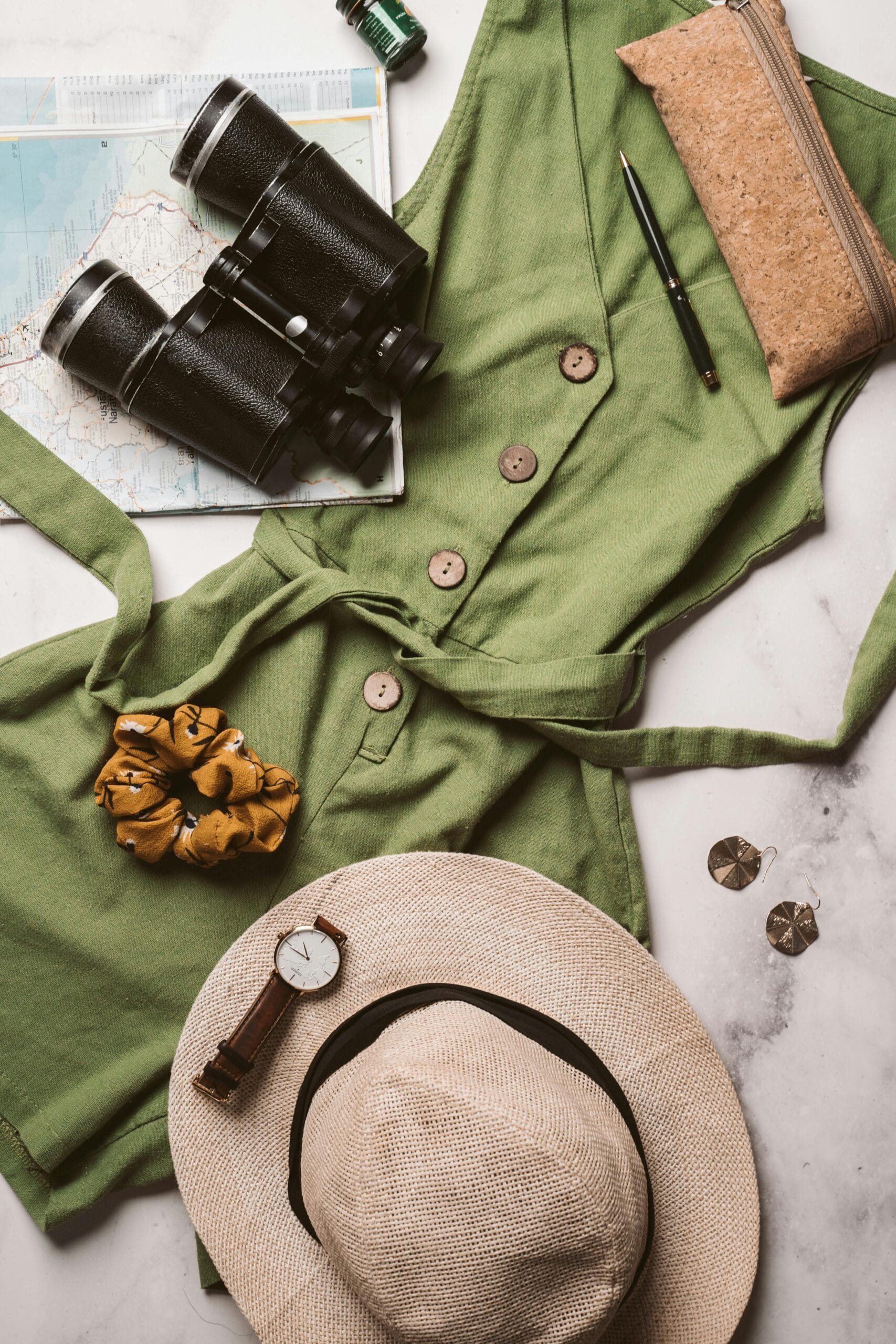
Packing for a Tanzanian safari requires careful planning to ensure you have everything you need for comfort, safety, and a successful adventure. Whether you’re heading to the Serengeti, Ngorongoro Crater, or Tarangire, it’s important to bring the right clothing, gear, and essentials to enjoy the experience fully. Here’s a comprehensive packing list to help you prepare for your Tanzanian safari with Future African Safari:
1. Clothing
- Neutral-colored clothing: Opt for lightweight, breathable clothing in neutral colors like khaki, beige, or olive. These colors blend in well with the environment and won’t attract unwanted attention from wildlife. Avoid bright colors and black as they may be distracting to animals and attract heat.
- Safari jacket or shirt: A long-sleeved shirt or light jacket will protect you from the sun and insects, especially during early morning and evening game drives.
- Comfortable pants and shorts: Light, moisture-wicking pants and a few pairs of shorts are essential for safari drives and walking excursions.
- Hat: A wide-brimmed hat will provide shade from the sun, especially during the day when temperatures can rise.
- Socks and underwear: Choose moisture-wicking socks and comfortable underwear to avoid chafing, especially if you’ll be on long safari drives.
2. Footwear
- Comfortable walking shoes: If you plan on taking walking safaris or hikes, pack sturdy, comfortable shoes with good support.
- Flip-flops or sandals: These are perfect for relaxing back at the lodge or camp after a day of exploration.
3. Sun Protection
- Sunscreen: The African sun can be intense, so bring a high SPF sunscreen (30+), and apply it regularly throughout the day.
- Lip balm with SPF: Don’t forget to protect your lips from the sun.
- Sunglasses: A good pair of polarized sunglasses will help protect your eyes from the bright sun and reduce glare while driving.
- Insect repellent: Mosquitoes and other insects are common, especially in the evening, so pack a strong insect repellent to avoid bites and potential illnesses like malaria.
4. Photography Equipment
- Camera and lenses: Tanzania’s wildlife is perfect for photography. Bring a good camera and a variety of lenses (zoom lenses are especially useful for capturing animals from a distance).
- Binoculars: A pair of binoculars will enhance your safari experience by giving you up-close views of wildlife without disturbing them.
- Spare batteries and memory cards: Always carry extra batteries and memory cards for your camera, as you’ll be taking plenty of pictures throughout the trip.
5. Health and Safety Essentials
- Prescription medications: If you take any daily medications, be sure to bring an adequate supply for the duration of your trip, along with a copy of your prescription.
- First-aid kit: Pack a small first-aid kit that includes plasters, antiseptic wipes, pain relievers, antihistamines, and any other personal health items you may need.
- Malaria prophylaxis: Consult your doctor about malaria prevention before your trip. Many safari areas are in malaria-prone zones.
- Water bottle: A reusable water bottle will help you stay hydrated during long safari days.
6. Documents and Money
- Passport and visa: Ensure your passport is valid for at least six months after your trip, and check visa requirements for Tanzania before you travel.
- Travel insurance: It’s advisable to have comprehensive travel insurance that covers safari activities, health emergencies, and trip cancellations.
- Cash and credit cards: Bring a small amount of cash in Tanzanian Shillings for small purchases or tips, though credit cards are widely accepted in lodges and camps.
- Emergency contact information: Keep a list of emergency contacts, including your safari operator, accommodation details, and any local numbers you may need.
7. Safari Gear and Extras
- Daypack or backpack: A small daypack is handy for carrying snacks, a camera, water, and any personal items during your game drives.
- Flashlight/headlamp: Power outages can occasionally occur in remote areas, so a small flashlight or headlamp will be useful.
- Power bank: A portable charger to keep your phone, camera, and other electronics powered up while on safari.
- Travel pillow and eye mask: If you have long drives between parks or early mornings, a travel pillow and eye mask will make your journey more comfortable.
8. Specialized Gear for Activities
- Swimwear: If your safari includes a visit to Zanzibar, Pemba, or any lodge with a pool, bring swimwear to relax by the water.
- Walking shoes: For those planning on walking safaris, comfortable and sturdy shoes are essential.
- Rain jacket or poncho: If you’re visiting during the rainy season, pack a lightweight, waterproof jacket or poncho.
9. Other Considerations
- Notebook and pen: Great for journaling your safari experiences or noting down wildlife sightings and other memories.
- Lightweight luggage: Opt for soft-sided luggage or duffel bags for easier transport between safari camps and lodges.
10. Tanzania-Specific Tips
- Electrical plug adapter: Tanzania uses the British-style three-pronged plug, so bring an adapter if needed for your electronics.
- Respect for wildlife: Keep a respectful distance from animals, especially in protected areas, and adhere to the guidelines provided by your safari guide.
Final Thoughts:
Packing for a Tanzanian safari involves balancing comfort, safety, and practicality. By following this guide and preparing well, you’ll ensure a smooth and enjoyable safari experience. Future African Safari is dedicated to providing you with all the information and support needed for your unforgettable Tanzanian adventure. Pack smart, stay comfortable, and get ready for the safari of a lifetime!


